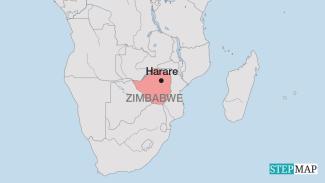Livelihood
In Zimbabwe, women earn a living by selling quelea birds

Women harvest the birds through trapping with nets after sunset. “We cook and dry them,” says Loveness Gapa from Birchnough Bridge, a vendor selling quelea birds packed in a small plastic for one dollar to travellers along the highway from Mutare to Bulawayo. The 25-year-old woman clothes and feeds her two children by trading the red-billed quelea birds. Some of the quelea birds popularly known as “Ngozha” in the Shona language are transported to cities like Harare and Mutare where they are sold at markets.
Skumbuzo Tondhlana, chairman of the Middle Sabi Farmers Association, says that quelea birds wreak havoc on wheat: “They are also a menace to sorghum millet and rapoko starting from grain filling stage up to when the crop matures.” Wheat is an important crop in Zimbabwe which provides flour used to make bread for the country’s population. It is a source of income for many farmers who sell the grain to the government and private millers. Farmers like Tondhlana are therefore relieved when people catch the quelea birds.
However, concerns have been raised by environmental conservationists over some people who use chemicals to kill the quelea birds. They see this as a threat to public health. They encourage the bird harvesters to use nets to trap them, as opposed to using dangerous chemicals.
Tinashe Farawo, a spokesperson of the Zimbabwe parks and wildlife management authority, says that his organisation is not trying to get rid of quelea birds. Instead, their efforts are only directed at controlling the bird population to remain within a size that does not render the country poor and food insufficient. “These birds are also migratory, and we only control those that visit crop fields, especially of the small to medium-scale farmers who cannot afford the repellent chemicals,” Farawo says.
BirdLife Zimbabwe, a conservation body, faults the strategy being used against quelea birds. Courage Chimbetete, who works with BirdLife, says that the extermination of quelea birds will result in disturbed food chains. He says that other birds of prey such as raptors, feed on queleas. “So, killing quelea in numbers reduces food sources and availability of birds of prey resulting in the death of these species and extinction over time,” he says.
Chimbetete is also sceptical about the toxic chemicals being used to kill the queleas and says that they are dangerous to non-target organisms. Authorities in Zimbabwe have been using a chemical called fenthion which is applied by aerial drones on the breeding sites of the queleas mostly in reedbeds.
Farai Shawn Matiashe is a journalist in Mutare, Zimbabwe.
matiashefarai@gmail.com













